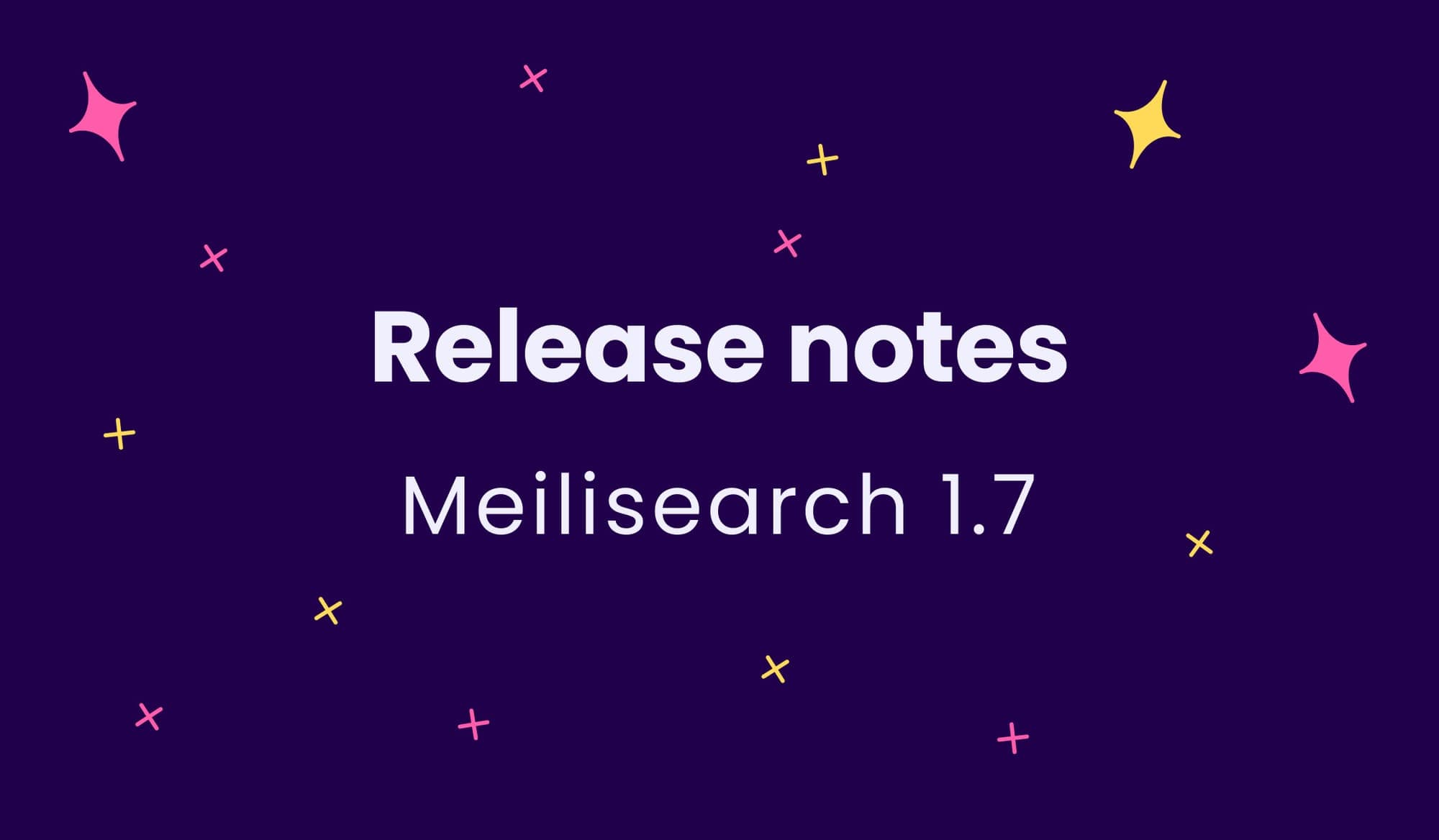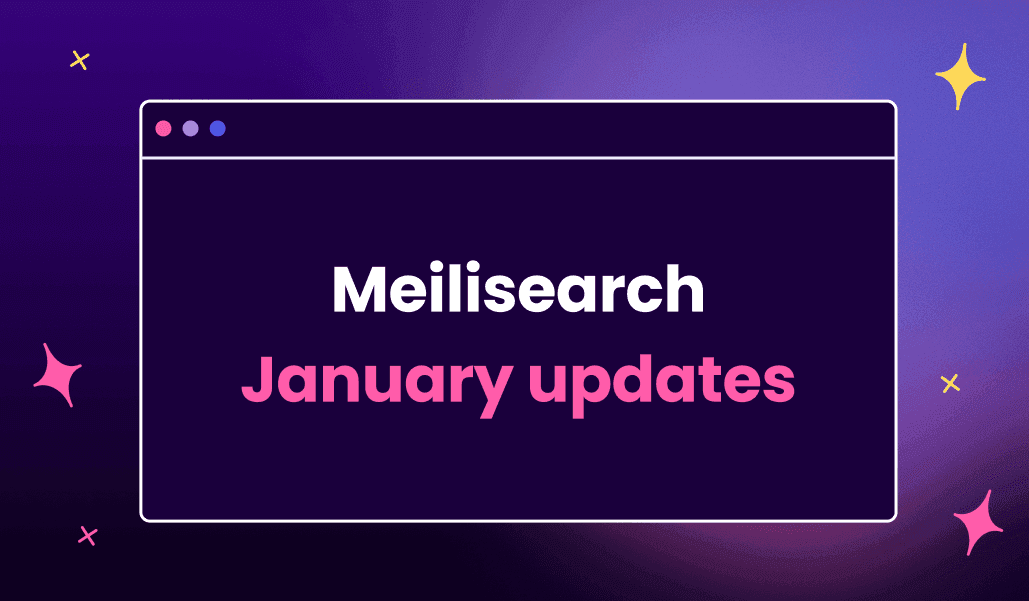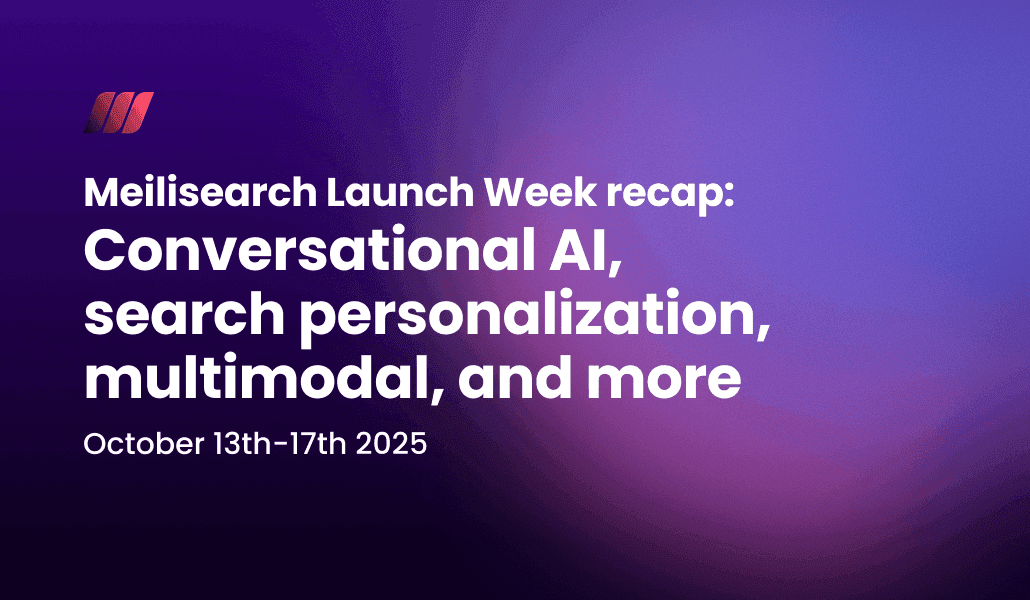Meilisearch 1.7
Meilisearch 1.7 stabilizes ranking score details, adds GPU support for Hugging Face embeddings, and integrates the latest OpenAI embedding models.

We're excited to unveil Meilisearch v1.7. In this article, we’ll review the most impactful changes. For an exhaustive listing, check out the changelog on Github.
Meilisearch 1.7 is available on Meilisearch Cloud too—upgrade now!
Improved hybrid & vector search
AI search is an experimental feature, read the docs to enable AI search.
New OpenAI embedding models
Starting with Meilisearch 1.7, you can use OpenAI’s third-generation embedding models:
text-embedding-3-smalltext-embedding-3-large
Compared to the previous text-embedding-ada-002 model, these new models offer improvements allowing to balance search results relevancy and cost efficiency.
The small model is more cost-effective, generating smaller vector embeddings that require less storage. The large focuses on delivering higher precision in search results, making it ideal to optimize relevancy.
Configuring OpenAI model dimensions
When using the new text-embedding-3-small and text-embedding-3-large OpenAI models, you can now configure dimensions for your model. When not provided, the model's defaults dimensions are used.
You can do so when updating your settings:
{ // other settings... "embedders": { "small": { "source": "openAi", "model": "text-embedding-3-large", "dimensions": 512 // must be >0, must be <= 3072 for "text-embedding-3-large" }, } }
Higher dimensions typically offer more complex embeddings which can lead to more accurate search results. However, increased dimensions are more costly to compute and require more storage.
You cannot customize dimensions when using OpenAI text-embedding-ada-002.
Use AI Search on Meilisearch Cloud
Meilisearch hybrid search and vector search are coming to Meilisearch Cloud. We're rolling out invites every day. Join the beta. 👇
GPU support for computing Hugging Face embeddings
Meilisearch 1.7 comes with the ability to enable GPU support for self-hosted Meilisearch for computing Hugging Face embeddings. This can significantly speed up the embedding generation process.
Find detailed instructions in our dedicated guide on Using GPU to compute Hugging Face embeddings.
Display ranking scores details at search
Meilisearch 1.7 stabilizes the showRankingScoreDetails search parameter that was introduced in [Meilisearch 1.3](/blog/v1-3-release/?utm_campaign=release-v1-7&utm_source=blog This parameter adds a _rankingScoreDetails field to each document in search results, enabling further inspection of the search results.
You can include the parameter when making searches:
curl -X POST 'https://edge.meilisearch.com/indexes/movies/search' -H 'Content-Type: application/json' --data-binary '{ "q": "batman", "showRankingScoreDetails": true }'
Learn more about the _rankingScoreDetails object and how to use it with your preferred SDK in the API reference.
Contributors shout-out
We want to give a massive thank you to all contributors that made this release possible: @capJavert, @codesmith-emmy, @Elliot67 and @Gosti for their PRs in Meilisearch, and @agourlay, @choznerol, @ngdbao, @timvisee, and @xshadowlegendx for their work on charabia.
Special thanks to our SDKs maintainers, thanks to whom Meilisearch is available across so many languages. 🫶
And that’s a wrap for v1.7! This release post highlights the most significant updates. For an exhaustive listing, read the changelog on Github.
Stay in the loop of everything Meilisearch by subscribing to our newsletter. To learn more about Meilisearch's future and help shape it, take a look at our roadmap and come participate in our Product Discussions.
For anything else, join our developers community on Discord.


